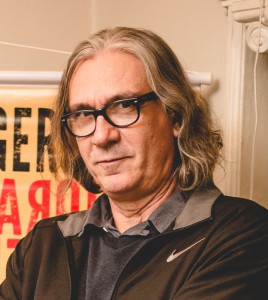Work on biologist Arno Lise was directed by Famecos professor Carlos Gerbase
The documentary Arno Lise – A Arte da Natureza (Arno Lise – The Art of Nature), published in 2019, tells part of the long career of one of the greatest spider specialists in Brazil. The biologist and naturalist spent all the 57 years of his career as a faculty at PUCRS, until he retired in 2016 – the same year he received the title of Professor Emeritus at the University. The documentary was the only Brazilian production to make it to the finals in the 2020 edition of Raw Science Film Festival, in the category professional documentary series.
Produced by Prana Filmes, which is directed by School of Communications, Arts and Design – Famecos professor, Dr. Carlos Gerbase, the medium-length film relied on the support of the Science and Technology Museum of PUCRS (MCT) – through its Associação de Amigos. Famecos’ research group Estúdio Transmídia, also collaborated with the recordings that took place partly in Tecna, in Viamão, and in Porto Alegre.
The audiovisual production portrays Lise’s life since the very beginning, in Rio Grande do Sul, where he began to collect the first specimens of beetles, in the early 1960s. It also shows his famous illustrations of tiny spiders, which he worked on until 2018.
The documentary shows him collecting new specimens, using the tools he created himself. It also shows him drawing small spiders with the aid of a clear camera attached to a microscope. Arno Lise identified several new species of arachnids, always driven by his passion for nature, particularly for insects.
Prof. Arno Antonio Lise, “Professor Aranha (Professor Spider)”, a nickname he was given for the role he played in this area of expertise, produced several other professionals. When commenting on the documentary, he is taken by surprise. “It was very flattering! It is a great happiness to know that these 57 years working at the University have inspired other people. I already lost count of how many students I had and how many works I published”, he says.
He said that in the beginning of his career, he did not expect his work to be of such great magnitude, as he is now a reference in Brazil, and abroad. “Never knew this could happen. I am not vain, I try to do my job the best possible way. It’s gratifying!”, he adds.
With his own style and refined technique, Lise became known to entomologists (specialists who study aspects of insects and their relationship with living creatures and the environment), in part, for drawing small spiders. Artistic work was a novelty at a time when research mostly dealt with larger insects. The last two decades of his life were dedicated to MCT, where he now works.
“MCT gave it the headstart. They asked me for help, in 2017, to make a short video about Professor Arno, who would be part of an exhibition about his spider drawings. I made the video and met the fantastic character. Then came the idea of doing a longer and more ambitious job”, Gerbase says.
During the interviews, the director realized that the career of “Professor Aranha” could inspire other scientists, because of his achievements. “He didn’t have a life of privileges. Quite the opposite. He fought for his career and was very successful”, he says.

Carlos Gerbase / Photo: Release/Prana Filmes
Carlos Gerbase serves as a professor at Famecos, teaching at both the undergraduate and graduate levels. He has been also a screenwriter and movie director since 1978, having made seven feature films and ten short films. He is a writer, with four works of fiction (two short stories and two novels), two essay works on cinema (digital technologies and direction of actors) and a teaching materials for High School students (introduction to audiovisual production).
In its 6th edition, the Raw Science Film Festival (RSFF) is one of the most important festivals in the world in the category of Scientific Films. This year, productions from 29 different countries were considered. Arno Lise – A Arte da Natureza is the only Brazilian production to be nominated.
As stated on its website, RSFF’s mission is to humanize science and ensure that evidence-based experts stay at the forefront of popular culture, celebrating the best scientific stories in the world. It honors achievements in science, technology and media and shows the best films in the world.
Editing by Alexander Desmouceaux and Fábio Lobanowsky. Sound editing and soundtrack by Augusto Stern, from Bunker Sound Design.